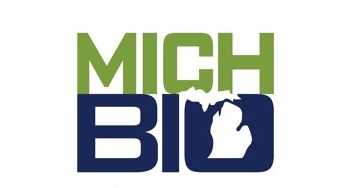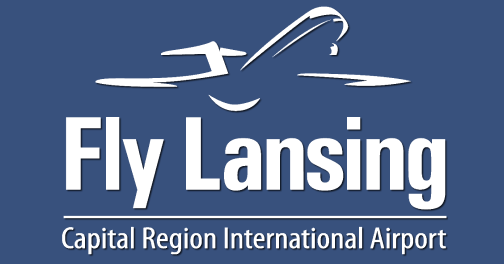 As we look ahead into 2024, MichBio has high hopes for a busy and impactful year on numerous fronts.
As we look ahead into 2024, MichBio has high hopes for a busy and impactful year on numerous fronts.
Programming – A Busy Year in Michigan and Beyond
Programming is already being mapped for the year. BioMixers have been scheduled for Grand Rapids, Kalamazoo, Lansing/East Lansing, Detroit and the U.P. Also, our hope is to restart BioArbor in September and bring that popular program back to life post-Covid for the benefit of the life sciences entrepreneurial community. So too, our Signature events, the Michigan Medical Device Summit (May 2024) and Drug Discovery & Development Symposium (fall 2024) will return to being stand-alone events, and we’re still figuring out how best to structure a Michigan Forum on Healthtech (Digital Health) and Patient Advocacy Forum.
Nationally, MichBio will be at JPMorgan Week in San Francisco beginning next Sunday, co-hosting our annual State Bio and Friends reception and partnering on behalf of Michigan early-stage companies. Once again, we’ve joined with the MEDC to attend several industry events and showcase Michigan’s life sciences cluster – Arab Health in late January, MD&M West in early February, BIO International Convention and Select USA Investment Summit in June, Bio Innovations Midwest in late September, Medtech Conference in October, and MEDICA in November.
Strategic Planning – Roadmap for Success
A major undertaking will be to update the Michigan Biosciences Roadmap for Success, a strategic plan for growing the statewide life sciences cluster. We’ll be pulling together a steering committee to oversee the benchmarking and priority setting process. This will include a listening tour, focus groups, opinion surveys and direct interviews, as we attempt to gather perspectives on what resources, policies and strategies are needed to drive bio-industry growth and ensure a sustainable future for the regional cluster.
Advocacy – State and Federal Priorities Abound
On the advocacy front, we expect another busy year, at least through the summer (fall 2024 will be lighter as we head into a presidential election season. A few high priorities left undone in Lansing from last session will hopefully move forward to enactment – a R&D Tax Credit and establishment of a rare disease advisory council (RDAC). In addition, we’ll be following closely the movement of prescription drug affordability board (PDAB), data privacy and right-to-repair legislation.
In Congress, our biggest tasks are to repeal the R&D amortization rule that has become a bane to businesses, especially small ones, and beat back attempts to undermine intellectual property protection through misguided assaults on March-in rights and invoking a TRIPS Waiver.
Throughout, MichBio will be engaging with elected officials and supporting our bio-industry colleagues, research institutions, and patient advocacy groups. That effort begins in late February when we host an inaugural Life Sciences Legislative Academy, a “101” overnighter program to better inform decisionmakers about our industry from idea to market (our first BioMixer in 2024 will be held jointly with Academy participants). Legislative fly-ins to Congress on behalf of the medical devices and biopharma sectors will follow in mid-Spring. And MichBio hopes to host an in-person Michigan Biosciences Day at the Capitol with reception, as well as some Bioscience Legislative Caucus briefings too. Your engagement in all our advocacy efforts is paramount – don’t shy away from being involved and letting your voice stand alongside MichBio in support of our industry.
Operational Improvements
At an operational level, there’s much to do behind the scenes. Maintaining the database is always a demanding chore but made more challenging as we continue to enhance the dataset with a comprehensive collection of assets and capabilities for companies across the medtech, biopharma, agri-bio, healthtech, suppliers and professional services. So if you’re sent a request from MichBio for business information – please respond! That also means beefing up the website to display more of that and other information, first in static form, and then in a new, user-friendly digital platform that we hope to onboard in 2024. Of course, all the internal activities depend on getting our staff back to full strength.
A Message To Our Members
Lastly, I just wish to remind everyone that MichBio is a member-driven, non-profit organization. So, we humbly ask our member organizations… please help communicate our value and encourage others to enjoy the benefits of membership in Michigan’s only statewide life sciences association.
In turn, we commit to listen and best understand how we can deliver value for your membership, better connect the regional life sciences ecosystem, and provide essential resources to support business growth.
To our large companies and institutions…continue to engage with us as we endeavor to drive cluster growth through advocacy in both the Michigan legislature and Congress as we encourage supportive public policy that will advance your mission in innovation and health.
To the small and mid-size companies, especially the early-stage startups across all sectors…get involved with our committees and programs whether networking or educational, access our BioConnections resources, and learn why public policy matters to your business operations and growth.
To our patient advocacy groups…help us help you tell your story and advocate alongside you on your issues by becoming a member (at no cost), participate in our Patient Advocacy Committee to better inform and coordinate mutual efforts, and be a partner on advocacy interactions with policymakers.
Academic and clinical research colleagues…encourage faculty and students to directly engage with us regularly by attending our events where they can meet industry thought leaders, commercialization experts, and potential collaborators, especially for those innovating.
To everyone…participate in the Preferred Purchasing Program to save money and keep up with us and Michigan’s bio-industry on social media! Similarly, if you have a story you’d like to share or help tell, we welcome your ideas for BioMatters and other media platforms.
As always, let us know what you think. And how we can be of better service.
The MichBio team wishes you a joyful, prosperous, and successful 2024!
|
This special edition BioMixer happens in conjunction with the Michigan Life Sciences Legislative Academy and will feature networking with life science industry professionals and enthusiasts along with Michigan Legislators who are attending the Academy.
The event is open to anyone – you do not need to be an attendee of the Legislative Academy.
Details:
- Cost: $10.00, FREE for MichBio Members
- Time: 5:00 – 7:00 PM
- Location: Van Andel Research Institute
Exclusive Sponsorship Opportunity available – foster collaboration between the life sciences industry and Michigan’s policymakers by supporting this networking event. Contact emily@michbio.org for details.
|
|
|
Federal
FTC, DOJ Finalize Merger Guidelines that Could Impede Healthcare Deals
The Federal Trade Commission (FTC) and Department of Justice (DOJ) released new merger guidelines that have implications for the life sciences industry. The new guidelines may give regulators more ammunition to go after vertical and cross-market M&A that has historically been more difficult to challenge. Private equity “roll-ups” of multiple companies may also face heightened scrutiny.
The announcement reflects the agencies’ proposal earlier this year and raises significant concerns given the unique role that mergers & acquisitions play in innovation and the development of novel therapies. The guidelines dramatically expand the number and type of transactions that the agencies will consider presumptively unlawful. READ MORE
White House Announces New Efforts to Target Prescription Drug Prices
On December 7, the Biden Administration announced new efforts intended to lower prescription drug costs. While the announcement includes broader initiatives, one component would allow invoking March-In rights under the Bayh-Dole Act to license the patent rights of drugs to other biopharmaceutical manufacturers when the price of the drug is deemed to be too high.
MichBio has grave concerns regarding the Biden Administration’s proposed framework on March-In rights, which is a departure from previous interpretations of the Bayh-Dole Act and would enact price controls that will stifle biopharmaceutical innovation, reduce competition, and harm patients’ health. Bayh-Dole has been central to the creation of new and more effective therapeutics by incentivizing basic discoveries and research in the form of technology licensing and has engendered a commercialization and entrepreneurial ecosystem in Michigan and nationally for decades. READ MORE
Repeal of R&D Amortization
The America Innovation and R&D Competitiveness Act of 2023 or HB 2673 was reintroduced that would repeal current rules and allow a business to deduct of R&D costs in the tax year that they occur and thereby incentivize long-term investments in innovation. Such repeal has been a top policy priority for MichBio and the bio-industry generally as it would aid many early-stage companies who have suffered greatly by not being able to immediate qualified tax relief for their businesses. HB 2673 has broad support from the Michigan Congressional delegation with Reps. Huizenga, Moolenaar, Kildee, Scholten, Slotkin, and Stevens, having signed as co-sponsors. READ MORE
|
|
|
State
So Close on Reestablishing State R&D Tax Credit…
Early fall 2023 saw a package of bills introduced that would reestablish a state research & development R&D) tax credit in Michigan – HBs 5099, 5100, 5101 and 5102. Ever since Michigan moved from the Michigan Business Tax regime to the current Corporate Income Tax regime twelve years ago, Michigan taxpayers have not been afforded a state tax credit for their R&D expenditures.
As proposed, taxpayers and authorized businesses with 250 or more employees could claim up to $2.0 million per taxpayer or business, respectively, per year. Taxpayers and authorized businesses with fewer than 250 employees (i.e., a “small” business) could claim up to $250,000 per taxpayer or business, respectively, per year. Additionally, taxpayers or employers could claim up to $200,000 in an additional credit for expenses from collaboration with a research university. The aggregate amount of R&D credits could not exceed $100.0 million (of which $25 million would be set aside solely for small businesses), and if they did, the Department of Treasury (DoT) would have to prorate the credits as prescribed by the bills. The bills would require the DoT to submit an annual report concerning the effectiveness and operation of the proposed R&D tax credits. READ MORE
Legislation to Enact Prescription Drug Price Controls
SB 483, SB 484 and SB 485 were introduced in mid-September 2023 that would establish a new state board – a so-called Prescription Drug Affordability Board (PDAB) – that would determine how much pharmaceutical companies can charge for certain drugs by setting an “upper price limit”. According to PDAB supporters, such a body would lower out-of-pocket costs for Michigan patients struggling to afford their medicines.
Essentially, a PDAB is a mechanism for setting price controls on drugs. As proposed, the unelected, five-person board, MichBio, in partnership with its national partners BIO and PhRMA, along with many biopharma company members, is vehemently opposed to the notion of a PDAB. The legislation would not to lead to lower patient drug costs as those expenses are completely based on prescription benefit design through the pharmacy benefit managers and insurance companies. Moreoever, the concern is that imposition of price controls would chill biomedical innovation in Michigan and lead to fewer prescription drugs developed and reduced access to Michigan patients. READ MORE
Regulation of Dogs and Cats in Research
SB 148 and SB 149, sponsored by Sen. Polehanki and Sen. Hertel, respectively, sought to regulate the use/disposition of animals in research including mandatory reporting on numbers of animals owned, used, and released by research facilities, mandatory requirement for adoption of research animals post-use, and other restrictions and penalties.
The legislation arose after an outcry by the animal rights community over the 2019 disposition of more than 30 beagles including Teddy, who had been used in safety pharmacology and toxicology studies. At least 13 states, including Minnesota, Illinois, and Virginia, have passed similar laws. READ MORE
Rare Disease Advisory Council
Legislation (HB 4167) to establish a Rare Disease Advisory Council (RDAC) in Michigan were progressing nicely through the summer following overwhelming bipartisan passage by the full House.
A RDAC would empower rare disease patients as partners in helping to shape policy development relevant to the unmet needs, common struggles, and concerns on equitable, quality, and affordable access to specialty treatment. The Council would have a diverse membership that includes academic researchers, health care providers and payers, industry members, and patients and caregivers. Twenty-four states have already implemented such a group, and others are poised to do so. READ MORE
|
|
|
|
|
State Bio Friends Kick Off Reception
KICK THE WEEK OFF RIGHT WITH MICHBIO AT THE STATE BIO ASSOCIATION RECEPTION
| |
 As we look ahead into 2024, MichBio has high hopes for a busy and impactful year on numerous fronts.
As we look ahead into 2024, MichBio has high hopes for a busy and impactful year on numerous fronts.












